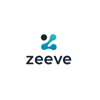Software as a Service (SaaS) startups face intense competition in today's digital landscape. To thrive in this environment, having a robust marketing strategy is essential. Whether launching a new SaaS product or aiming to scale an existing one, here are some essential marketing strategies to help your startup succeed.
Understanding Your Target Audience
A deep understanding of your target audience is the foundation of successful SaaS marketing strategies. Start by creating detailed buyer personas that outline your ideal customers' demographics, pain points, goals, and preferences. Conduct market research, analyse customer feedback, and leverage data analytics to refine your understanding continuously.
Crafting Compelling Content
Content marketing is crucial in building brand awareness, establishing thought leadership, and driving organic traffic to your website. SaaS marketing strategies should involve creating high-quality content that addresses the needs and challenges of your target audience. This could include blog posts, whitepapers, case studies, videos, webinars, and infographics. Distribute your content across multiple channels, including your website, social media platforms, email newsletters, and industry publications.
Search Engine Optimisation (SEO)
Optimising your website for search engines is essential for increasing online visibility and driving organic traffic. Conduct keyword research to identify relevant search terms and incorporate them into your website's content, meta tags, and URLs. Focus on creating valuable, user-friendly content that answers common questions and solves your audience's problems. Regularly monitor your website's performance using tools like Google Analytics and Search Console to track your SEO progress and make data-driven adjustments.
Building a Strong Social Media Presence
Social media platforms offer a powerful way to engage with your target audience, build brand awareness, and drive traffic to your website. Choose the social media channels that are most relevant to your target market and create a consistent posting schedule. Share a mix of promotional content, industry news, thought leadership insights, and user-generated content to keep your audience engaged. Encourage social sharing, interact with your followers, and monitor social media analytics to measure the effectiveness of your efforts.
Implementing Email Marketing Campaigns
Email marketing remains one of the most effective channels for nurturing leads, retaining customers, and driving conversions. Build an email list of subscribers who have opted in to receive communications from your company. Segment your email list based on demographics, purchase history, and engagement level to deliver personalised content that resonates with each segment. Experiment with emails like newsletters, product updates, promotional offers, and automated drip campaigns to see what resonates best with your audience.
Harnessing the Power of Influencer Marketing
Influencer marketing can help you reach new audiences, build credibility, and generate buzz around your SaaS product. Identify influencers in your industry with a strong following and values aligning with your brand. Collaborate with them on sponsored content, product reviews, or co-branded campaigns to leverage their influence and reach. Monitor the performance of your influencer campaigns and track metrics like engagement, clicks, and conversions to measure their impact on your marketing goals.
Effective SaaS marketing strategies are essential for success in the competitive world of SaaS startups. By understanding your target audience, creating compelling content, optimising search engines, building a strong social media presence, implementing email marketing campaigns, and harnessing the power of influencer marketing, you can attract, engage, and retain customers while driving growth for your startup. Stay agile, monitor your results, and continuously iterate on your marketing strategy to stay ahead of the competition and achieve your business objectives.







Top comments (0)